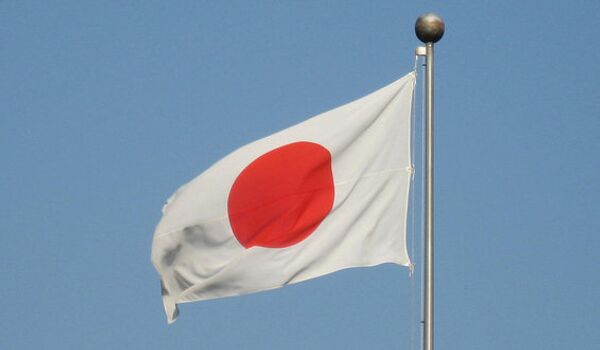MOSCOW, April 24 (RIA Novosti), Nikita Alentyev – At a time of global instability and military tensions, Japan’s decision to join the International Arms Trade Treaty (IATT) is an alarming signal, Vadim Kozyulin, an expert on international security, told RIA Novosti Thursday.
“Japan joining the IATT is a ‘weak’ apology to the international community for future weaponization of the country. Globally, the fact that such controversial trends coincide is unnerving and raises valid concerns,” said Kozyulin, the head of the conventional arms program at the Russian Center for Policy Studies.
Kozyulin explained that the decision to join IATT is not the essence of military controversy around Japan, but rather a manifestation of the country’s new defense policy.
“Japan has recently taken two key military decisions. First, the creation of its own armed forces. Second, the entry onto the global market for weapons with its own products,” Kozyulin said.
“This is very alarming news. Japan’s neighbor is emerging military giant China, which complicates Sino-Japanese relations and, ultimately, poses a threat of military conflict,” he added.
“Under these circumstances, Japan’s decision to take a firm stand on its security is a bad, yet expectable, signal for the international community,” he concluded, adding that joining the IATT is a logical move for Japan given its plans for a military buildup.
“In this respect Japan – as a new player in the market – has to show right away its willingness to play by the rules,” Kozyulin said, pointing to the treaty as Japan’s way of entering the global weapons market on ‘fair’ terms. The existing market players “would have to watch Japan’s arms exports very closely,” he said, mainly because reputation is paramount for arms sales, and “it is much easier to lose a reputation than to build one.”
Commenting on the terms of the treaty, Kozyulin added that the current situation in the world is hardly conducive to the success of this international effort.
“The IATT is ill-timed for an initiative like this. The world is entering a new stage of geopolitical tensions and, possibly, an arms race; with the leading weapons producers not in a hurry to join the Treaty,” he said.
“Even the US, showing formal support for the treaty, is in fact not ready to ratify the agreement. More importantly, should the Republicans take a political lead in the country, the IATT may be seriously jeopardized,” he explained.
On Wednesday, Japan’s upper house of parliament, the House of Councillors, unanimously approved a bill providing for the country’s accession to the UN Arms Trade Treaty. The Japanese government now expects a fast ratification of the treaty, although no specific date on its implementation has been announced so far.
The IATT, adopted at the UN General Assembly last year, is the first international pact regulating commerce in conventional arms, backed by 154 countries, including the United States. Three countries voted against the treaty in the UN and 23 countries abstained, including Russia.
Before the treaty comes into force, 50 states must ratify it. According to UN data, 31 countries have ratified the treaty so far.




